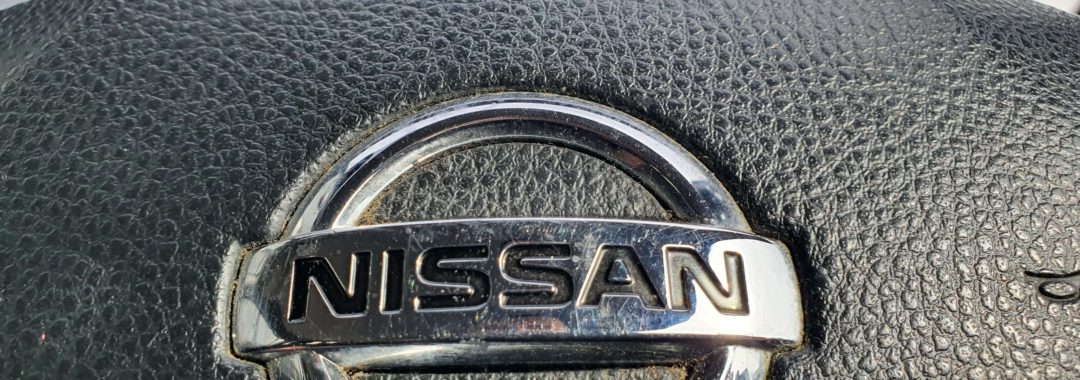The Nissan Qasqhai as you know is a very popular small SUV on Irish and European roads, however unfortunately they are also frequent visitors to the garage with engine warning lights and ABS/ ESP lights on. Here are some of the common reasons why we see them and what you can do to minimise the chances of yours letting you down.
The issues we see them in most for are DPF, exhaust and fuel system related faults. The ABS/ESP lights are usually (but not always) a consequence of an issue with with engine/ exhaust monitoring systems on this particular car. In all honesty by far the most common problems derive from frequent short journeys, low fuel levels, poor servicing and bad quality oils. However there are a number of weak points on these vehicles too which there is not much you can do about for example injector, exhaust flap, glow plug and induction pipe failures, but when they go wrong you should be dealing with them immediately before they cause you bigger issues.
There are a few engine types in the Qasqhai the most commonly seen variants are of the 1.5 and 1.6 DCi units which as most will know are actually an engine developed by Renault. As with all modern engines the right oil type being used is critical to efficiency, performance and reliability of the vehicle. The wrong type of oil being used can cause some major contamination and wear of engine components and not least of all the DPF. Poor servicing habits also cause issues for example the engines ability to breath is very reliant on a good quality and clean air filter so a clogged air filter will do your vehicle no favours. These may, to some, seem like very obvious steps to take but you would be surprised how many people don’t take them. I won’t delve much deeper into the servicing side of things as it really is simple, yet important, regular maintenance, proper oils, quality parts!
When a warning light comes on in your vehicle you really need to deal with it soon, especially in these particular cars. From experience over the years we have seen the customer who has an engine management/ fault light on for months and then as the NCT looms near decides its time to “erase” the fault to extinguish the light. This is not a practice we approve of at all, especially with some of the cheap code readers on the market, accurate diagnosis is done using proper equipment, information, training, experience and procedures. You may get lucky with some cars having a minor fault, however we have found that with the Qasqhai the common faults that put on the engine light and even the ABS lights very quickly lead to serious blockages in the DPF and in many cases have left the driver stranded with a serious lack of power or even a non-runner.
By far the most common issues we come across in the Qasqhai, and other vehicles, are down to two things, frequent short journeys and frequent low fuel level. The short journeys are a major issue for DPF equipped vehicles as the exhaust temperatures don’t get up high enough to enable regeneration(cleaning process) of the DPF, or in some cases where the journey is just long enough to hit the required temperature but during the regeneration process the journey ends and cuts short the procedure. In a short period of time the car will start to register regeneration frequency faults and/ or become clogged leading to loss of power or as stated before become a non-runner. The other common issue is one of fuel level, we’ve all heard the stated over the years “don’t run the tank too low, you’ll suck up all the crap in the bottom of the tank”, well fine , yes, to a point and depending on fuel and tank condition, however on modern DPF equipped diesel engines the actual software for regeneration may stop regeneration when fuel level is detected as being below quarter of a tank, so if you consistently allow your fuel level to get that low or never top it up above quarter you will probably fall victim to a DPF issue also.
“What can I do about this?”
So what can you do? Well quite simply:
- Firstly ask yourself am I giving the vehicle sufficient driving to allow it to operate correctly and if you aren’t you should either adopt a different driving style/ routine or seriously consider if a diesel engine is cost effective and reliable for you.
- Use good quality fuel, keep the fuel tank topped up and never below quarter tank. Also maybe consider the use of quality fuel additives, such as the JLM range, that will aid regeneration (especially if you are concerned about regeneration due to irregular driving cycle) or also for keeping the fuel system working at its optimal level.
- Keep you vehicle regularly maintained using quality oils and parts. check you oil level regularly and if the oil level is getting too high have it checked out, this is often a sign of excessive regenerations of the DPF.
- If you have a fault light on, the vehicle is lacking power, is chucking when driving or you hear strange sounds when accelerating get it checked sooner rather than later.
Hopefully this may be of some help and if nothing else will give you an insight into some of the factors you may not have thought about that can affect the performance of your vehicle.
Any queries about this please feel free to contact us, we are heavily involved in vehicle maintenance & diagnostics and as members of The DPF Doctor Network we are well placed to take care of your DPF issues.
Thanks for reading, keep an eye out for more articles coming soon!

